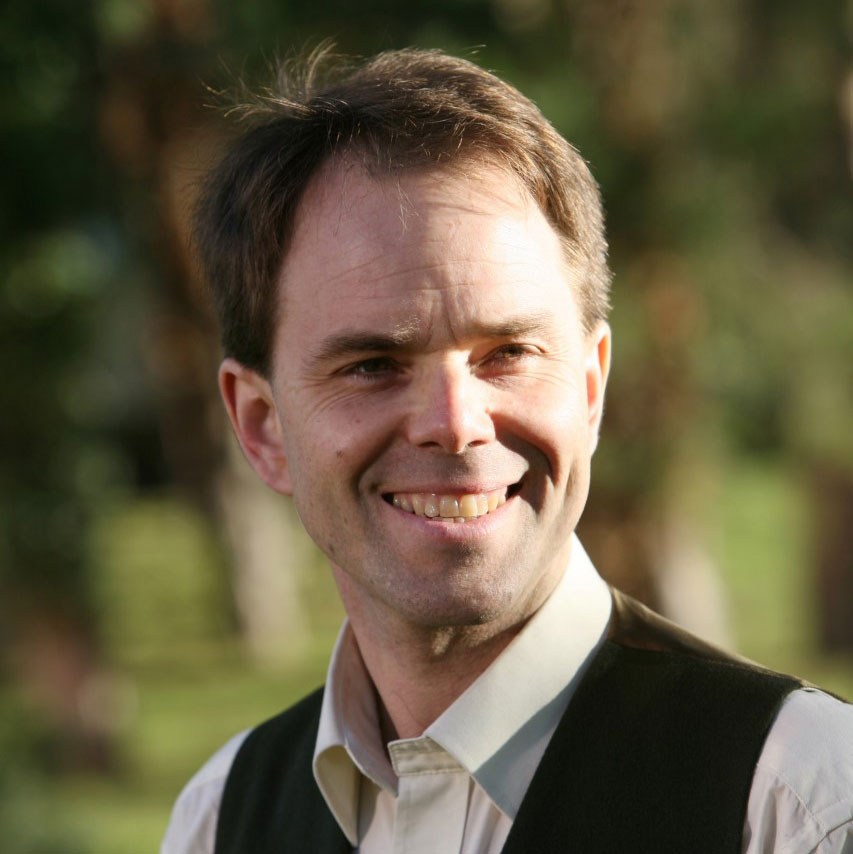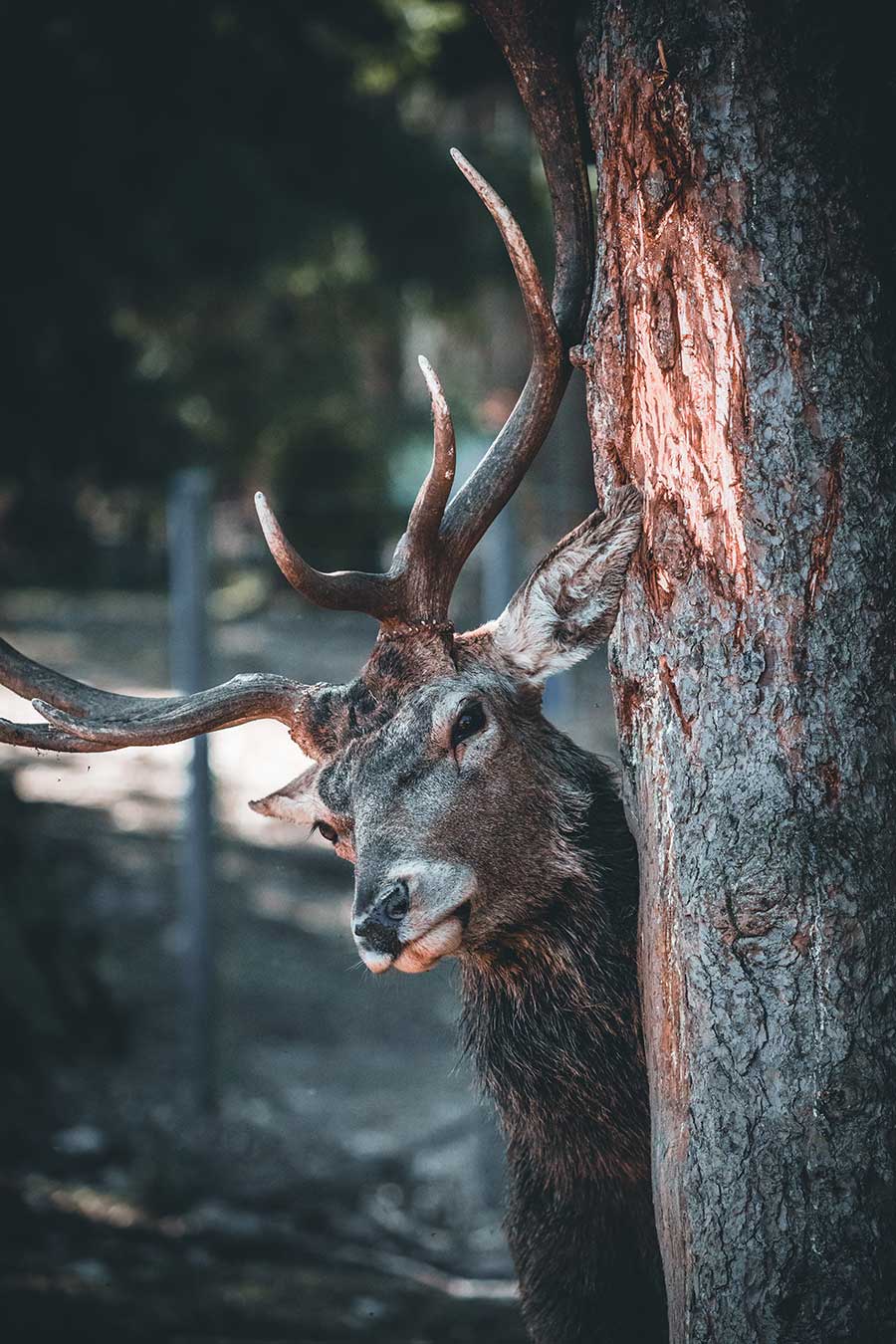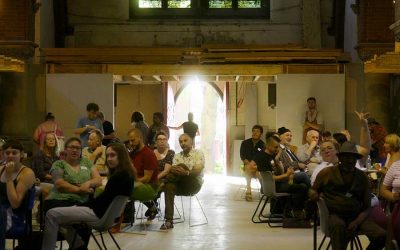Episode #11 This Civilisation is finished?
an interview with professor rupert read
Rupert Read is convinced that societal collapse is inevitable – and near. And that this is White Swan effect – it’s not remotely surprising or coming out of left field. So this being the case, we need to act – we have a choice between crashing into extinction OR moving forward to a transformation of our culture and society so profound that what transpires bears no resemblance to the current society.
Given that this is the case, what can we do? In this lively, dynamic conversation with Rupert Read, we delve into the topic of Deep Adaptation, Transformative Adaptation and the various routes to a different future. We explore the routes Extinction Rebellion could take to avoid ‘rushing the rebellion’ and look forward at ways we could craft the world we need to see.
Prof. Rupert Read is one of the definitive spokespersons on ‘The Collapse’. He is the co-author of This Civilisation is Finished. The book describes how Industrial civilisation has no future. It requires limitless economic growth on a finite planet. The reckless combustion of fossil fuels means that Earth’s climate is changing disastrously in ways that cannot be resolved by piecemeal reform or technological innovation….
Unless humanity does something beautiful and unprecedented, the ending of industrial civilisation will take the form of collapse, which could mean a harrowing die-off of billions of people’. He has been a frequent spokesperson for Extinction Rebellion. This has involved meetings with senior politicians from across the political spectrum. He represents Extinction Rebellion on national radio and television, including Radio 4’s Today programme and the BBC’s Question Time and Politics Live. He teaches philosophy at the University of East Anglia, and created and (until recently) led the ‘philosophy of presence’ group in Norwich. He was taught by Joanna Macy, Thich Nhat-Hanh, Richard Rorty and Stanley Cavell.

In Conversation
[00:00:14.61]
My guest this week is someone who stands at all of those intersections. Rupert Read is an associate professor of philosophy at the University of East Anglia. He’s a thinker, an author, a blogger and a climate and environmental campaigner.
He’s the author of a little book called This Civilisation is Finished, which is an absolute must read if you’re interested in this area at all. I will put a link in the show notes. He’s also a key member of XR, Extinction Rebellion, part of their political group, and he’s spoken to people from the shadow chancellor to the environment secretary and is heading upwards in our current political lineage to talk to these people about where we need to go and how we need to get there. But more than all of this, Rupert is one of the people who stands for me very solidly in the second of Joanna Macy’s three pillars of the great turning, that we talked about last week, with Della Duncan.
If you remember, the first is holding actions, the second is systemic change and the third is shifting consciousness, which is where we are most focused with Accidental Gods. But we need the other two to keep everything else going and Rupert is one of the key thinkers of systems change of how we can change the current system, how we need to change it, where it might go and all of the complex things that arise from that.
So here we go. An interview, in his home, with Rupert Read of the University of East Anglia.
[00:00:14.61]
First, to come to your book. This Civilisation is Finished is a pretty solid title. It’s quite short, 86 pages, and quite a lot of notes. And it’s a conversation between you and another philosopher. Can you tell us a little bit about how it arose and what the core message is?
So a few years ago, I was delivering leaflets for the Green Party as it happens and this phrase just whammed into my head and the phrase was: this civilisation is finished and it just wouldn’t go away and it was kind of there for days. So, after a few days, I did what people like me do, which is I started when you’ve got a kind of bug that you can’t fix, I started trying to write about it and I wrote a piece. And this piece was unlike anything I’d ever written before because I really didn’t want anyone to read it. So I started very kind of gingerly sharing it with some trusted friends and colleagues and said look what do you think of this.
I shared it with all sorts of people, philosophers and political actors and assorted intellectuals. I asked them what they thought, and I said don’t forward it. And they said, Rupert, this is this is brilliant. This is really important. You need to find a way of sharing this. And eventually one of them persuaded me to publish a version of it anonymously.
And after I’d done that and again, hadn’t got the pushback that I feared, the pushback being people saying, you’re a defeatist, you’re a sell-out, this is terrible, you’re going to demoralise everybody. I then very kind of gingerly gave my first talk on it. I was very, very nervous. But again, no pushback.
Basically, almost every time I’ve given this kind of talk since what’s happened is basically most people have said things like, oh my God, this is so refreshing, is so liberating. Thank God someone’s finally really telling it how it is. And so, I decided to write a book about it. I’d been in touch with Sam, who’s an expert in de-growth for years. And I proposed to him that he work with me editorially on making the book possible. So, the book as a kind of dialogue between us, he sort of asked questions and I answer them. But it’s far from being, he’s far from a kind of yes Socrates, no Socrates figure. It’s quite a serious dialogue, I hope.
And yeah, the basic idea of the book is we are on course to collapse our civilisation. If we do collapse it, then that might be completely terminal or we may be able to create a new civilisation out of the wreckage. There is still some very, very slim possibility that we might be able to avoid this kind of collapse. But, if we do, the transformation that will be required will be so deep and wide and rapid that in no meaningful sense will the civilisation that comes out the other side be the same one as we inhabit.
So, any which way you look at it, my claim is this civilisation is finished. It will either die exterminating everything or it will die and give birth to something else, or we will transform it rapidly. And it will still no longer be the same civilisation as we are inhabiting right now.
[00:06:12.81]
And in the book, you talk about this being a ‘Hoyts one event’ rather than a ‘black swan event’. Can you enlarge a little bit on that?
Yeah. So black swans are events which are kind of unexpected and catastrophic and the point I make about climate and ecological breakdown in the book is that that’s not how it is with the crisis that we are in. The warnings are extremely stark and direct. The writing is on the wall. The doomsday clock has just been moved to 100 seconds to midnight. So, we can not say we haven’t been warned and for a long, long time. Climate breakdown, ecological breakdown, which are the most likely drivers of a societal breakdown, that breakdown could take various forms we might discuss, is a white swan. It is absolutely what we should now expect in order to prevent it, in order to achieve a third of my three possibilities, in order to transform this civilisation without having to undergo a collapse. We’re going to have to do something completely extraordinary and unprecedented. We can’t bet on succeeding in doing that. We should try to do it, but we can’t bet on succeeding. So we also now have a profound responsibility to start taking seriously the process of what my friend and colleague Jim Bendall calls Deep Adaptation, we have to start putting ourselves in a position of readiness for potential societal collapse because it’s just way too late to bet everything and all our hopes and all our resources and so on, on being able to effect this civilisational transformation. Yeah, let’s try to achieve it, but let’s also prepare ourselves for the fall.
[00:07:54.99]
To put this into context… I was listening to an interview with the head of the Conservative Environment Network, who was lauding the fact that they had listened to all of the signs and they had got a 2050 date for carbon zero. And they felt that this was possibly achievable provided nobody got in their way or suggested that it wasn’t the most useful thing to be doing.
They think that they have listened to all of the signs! Either these people are entirely mendacious, or they’re decent human beings trying their best, I am endeavouring to believe the latter while suspecting the former. And, yet, it seems to me, having read the Deep Adaptation paper and your book, that the science is incontrovertible and 2050 is a fantasy.
How is it that, even now, there is such a wide disparity between what we believe to be a white swan and the world that they live in?
To be fair to people like this guy who you’ve just mentioned, I think that nearly all of us are at some level in denial. I think that very, very few of us, not even myself, who are in the position of being fully able to face all the time the awfulness of climate reality, of the ongoing sixth mass extinction, of the likelihood of what’s going to happen in this century. Even if we do incredible, wonderful things, we know how bad stuff is going to get. Mostly now it’s about damage limitation rather than achieving some kind of wonderful sunny uplands.
So, the 2050 fantasy, you’re quite right in your characterisation of it, is just the sort of most powerful elite response to that situation of almost ubiquitous denial. But that shouldn’t stop us from explaining very clearly how it is a fantasy.
One place to start with this is with the IPCC 1.5 degree report from about 16 months ago now. And it’s very clear if you read that report, that we need to have extremely rapid reductions in carbon emissions across the world, but especially in the countries which are the countries with the heaviest footprints and the heaviest historical responsibility. Countries like our own, massive footprint per capita, enormous historical responsibility. We need to have extremely rapid reductions if we’re going to be anything like safe. Basically, if you’re going to have precaution and equity, which are the principles which as opposed to underlie these kind of processes of international negotiations, then as Tim Jackson, for example, the great ecological economist has recently argued in a paper called Zero Carbon Sooner, you’re going to have to have a date way before 2050.
In fact, Tim Jackson argues that according to precaution and equity, and in many ways, his analysis is still quite conservative, the target date for zero-carbon should be, surprise surprise, 2025. The very date that Extinction Rebellion has been pushing. And let’s remember, that, of course, is more ambitious than what the IPCC say. But let’s remember that the IPCC is in a number of ways, very conservative, even in their absolutely drastic 1.5 degree report. The IPCC reports are always a few years out of date. They have to nail absolutely everything down in terms of evidence. They can’t move ahead of the evidence to actually take care of society, in the way that we ought to if we’re operating according to the precautionary principle, and notoriously a number of the mainstream climate scientists predictions as to what was going to happen with our climate – we’ve already exceeded so-called worst case scenarios, for example, around the Arctic melting.
In my opinion and I would argue this in detail, the IPCC reports do not have a way of framing the vicious feedbacks that we’re facing. That makes it sufficiently clear to readers of those reports what the nature of those feedbacks is potentially going to be, what we’re exposed to, the kinds of risk that, again, if we were being precautious, we would be protecting ourselves against.
And finally, of course, it’s not even to mention the fact that the IPCC summaries for policymakers, which are the things that most people actually read, rather than the full reports, are edited by policymakers and civil servants. They’re not you know, they’re they are drafted by scientists, but it’s governments that get to edit them. And I can absolutely promise you that the governments do not edit them to lean on the side of precaution and equity and so on and warnings of how bad things could get. They always edit them in the opposite direction. So, the IPCC reports are way ahead of where the British government wants to be, they’re way ahead of the 2050 target, especially in the way that this government is saying they’re going to pursue it.
And the IPCC is actually really conservative and you need to be looking instead, at least to something like Tim Jackson’s approach. So, when we talk about 2025 or something like that now, that might just sound like a difference of date 2050. 2025, well , we could be more ambitious or less ambitious, but actually it’s a complete qualitative difference.
Because if you think that what you’re trying to do is create a zero carbon, or net zero, carbon economy by 2050 and of course, the net is there’s an awful lot of dangerous devil in the detail there, it’s in that net, they have the the fantasy of all sorts of weird and wonderful technologies that haven’t been invented yet that will enable us to continue to emit climate deadly carbon after 2050. Whereas if you go for 2025, then you can’t bet on any of those fantasies. You have to be serious about a wartime like mobilisation to change everything now, basically, as soon as we possibly can, it’s an emergency response. It’s an emergency mobilisation and that emergency response, as I say, would transform our civilisation. We would need to phase out some industries. We would need to completely alter our model of transport. We would need to eliminate most flying.
We’d need to be not just thinking, oh, well, fine, we can all have electric cars. No, a full fleet of electric cars just replacing our current petrol car fleet is absolutely no way you get to net zero carbon by 2025. Absolutely nowhere near it. If you’re serious about a something like a 2025 target, you’re talking a full-scale emergency societal transformation. And very, very few people have got their heads around that yet.
[00:15:03.55]
I would like to talk about the precautionary principle, but just before that…
I was out canvassing for the general election for six weeks in the Midlands. I went to Telford, Crewe and Nantwich. I didn’t have a single conversation on the doorstep that touched on any of this. If we were going to do this, if, let’s say you and I were jettisoned into No.10 tomorrow and we had the levers of power, how would we bring the population with us?
Because there isn’t a war. It’s not you haven’t got a named enemy that you can demonise in the way that war does. You’ve got, we are doing things that are going to be catastrophic, but you can’t see the catastrophe yet unless you happen to look at Australia. But the Australians manage to be in denial. How do we take people with us?
I think things are changing in Australia. And I think that events like that, are impacting people, most obviously where they are, and to some extent beyond. So, you know, that’s going be one thing that happens in the next few years. People will be woken up by more and more climate shocks and climate disasters.
[00:16:17.92]
But the alt-right is telling us that the fires in Australia were arson and they were caused by the Green Party on Australia, not letting the Australian government clear the bush. I mean, it’s fantasy and it’s wrong. But they have a narrative.
But that kind of shit and lies has less and less traction as time goes by and those people come to look more and more stupid and obscene and dangerous. And I think some people have seen through the Australian government in that context. But look, you’re right. It’s not going to be at all easier. We need the government and the media to tell the truth. That’s the first demand of extinction rebellion. We need to help in that process. My belief is that one way that we can do that is by ourselves getting a lot better at telling the story of our vulnerability.
I’ve made in this new pamphlet that I’ve co-authored with a couple of colleagues in XR called Rushing the Rebellion, Rushing the Emergency, where we argue that actually some of our emergency messaging isn’t really sticking with people. Until you get people to feel that kind of sense of vulnerability, which you can do through discourse and you can also do through actions, this is not going to feel real to them and therefore it isn’t going to come through in doorstep conversations.
Part of my hope for Extinction Rebellion in 2020 is that we tell the vulnerability story a lot more and that the kind of argument we’re making in Rushing the Emergency, Rushing the Rebellion gets to have more traction, which I think is starting to happen. And that could change things. But again, let’s also be honest. What are the chances of this working at scale and at speed and so on? Well, you know, they don’t look good, despite the fact that XR had this enormous awakening effect and it’s part of a broader awakening that includes obviously the climate school strikes and it’s prompted by the terrifying weather events of the last few years.
So we have to be courageous enough to look down. We have to be courageous enough to understand that we’re off the cliff, we’re like one of those cartoon characters that’s kicking their legs frantically in the air and there’s going to be a lot of pain and damage in the years ahead. And it seems very unlikely that humanity is going to get its act together in time. So, we need to have a serious agenda of adaptation and not just mitigation and prevention. We need to be doing Deep Adaptation to prepare for potential societal collapse. And we need to be doing what Think Tank Greenhouse called ‘Transformative Adaptation’, which is trying to make the changes in society that we know we already desperately need to make that will prepare us for the harder times ahead, to do so in a way which is simultaneously mythicative and to try thereby to create a sort of win win-win.
[00:19:32.35]
So we’re talking about the creation of local resilience networks, food, resilience, water, resilience, power, resilience and transport resilience?
Absolutely, we’re talking about working with nature rather than against nature in terms of something like flood prevention. We need flood prevention and flood amelioration schemes that are not carbon heavy, but rather are carbon absorptive and that do not create a sort of brittle system which will be overwhelmed by the rising tide of disasters that tragically are going to be coming.
We need to be thinking in the kind of way that Joseph Tainter describes in his great book, The Collapse of Complex Societies, and his more recent work. The implication I draw from that work is that in this madly over a complex society, in order to give ourselves enormous power, we’ve created this vast collateral damage of habitat destruction and the time bomb of dangerous climate change. The only way we’re gonna get through this now, is by effecting a radical simplification. And in fact, that simplification is going to be imposed upon us if we don’t do it voluntarily. So, again, this civilisation is finished. The question is, is it going to be finished by an enraged nature destroying us, or is it going to be finished by us getting in just ahead of that destruction?
A fascinating historical example which Tainter discusses, is the latter stages of the Roman Empire. Notoriously, of course, the Roman Empire declined and and fell, or at least the Western Roman Empire did. What’s less discussed is that the Eastern Roman Empire, the Byzantine Empire, survived. Now, how did it survive?
Well, fascinatingly, the way it survived when it was under most pressure in the 8th century and around that period, pressure from all sides, but especially from Arab forces, was by radically simplifying. It survived by de-complexifying. It survived by radically relocalising. That means things like, rather than having a huge professional army, the army devolved into local peasant militias that defended their own lands and most of the monetary economy was dropped. The economy no longer largely worked on the basis of money, but was far more based in subsistence and again, localisation. Now that is, I believe, an inspiring precedent. If we were able to find a way of radically de-complexifying our society, creating that kind of local resilience in the years to come, not too many years, then we may be able to survive the coming storms without collapsing.
And as I say, it’s not a question of either you do that or you carry on, you know, having whatever, you know, holidays on the Great Barrier Reef and business as usual with a bit of greenwash. No. If we tried to go down the route of continuing our society, even of reforming our society, it will collapse. So either we do something like this kind of radical simplification or we’re just heading straight for the buffers.
[00:23:10.64]
Are you familiar with Murray Bookchin’s work and the municipal libertarianism that the Kurds are taking on board? It sound like they are already heading for where you describe, having started from a very different place.
Yes. I think that the there’s lots to be learned right now, as you say, from their Rojava example. There are real current examples and historical precedents that we can learn from if we’re willing. We have to learn quickly and whatever we do in this direction will mean that the impact will be likely to be a softer landing.
[00:23:47.42]
At Accidental Gods our thesis is that, if we can move to a place of conscious evolution, of spiritual evolution, we will reach a phase shift out of the current system.
But the point is that we cannot see where we’re going – no problem is solved from the mindset that created it. When a complex system bifurcates, it either heads for chaos and extinction or it makes a phase shift to an entirely new system that was basically invisible from where we started.
You talk a lot in your book about spirituality. Could you talk a little bit about how, in your view, spirituality weaves through an ideal set of circumstances, if we were able to make the shifts that you want, where would spirituality lie within that process?
I hope to be exploring this in the course I’m going to be teaching in Schumacher College in May called A Spiritual Basis for Rebelling Against Six-Inch Extinction.
I think that there is bound to be, in the future, a resurgence in devotion to an interest in place and locality. For reasons that are already apparent from the ground that we’ve covered in this discussion. And this is going to be, by the way, an especially difficult transition to effect for a lot of right thinking, well intentioned liberal middle-class people in societies like ours who are the people who actually tend to think of themselves much more as anywhere’s rather than somewhere’s, and people who feel comfortable moving around the world and so on, so forth. All of that is coming towards an end.
What is going to be starting is more of a sense of rootedness and more of a sense of place and of love of place. And one of the great challenges is, let’s make sure that this can happen in a way which is positive and beautiful and spiritually inflected, and not in a way that is atavistic xenophobia. That is an enormous and vital challenge of our times, which I think most people in universities haven’t even literally got to first base in conceptualising yet.
I believe that it’s obvious the crisis that we’re going through is, among other things, a spiritual crisis in a broad enough sense of that term, and that we will be living in the future if we do not collapse completely, in a way that involves some kind of better, broadly speaking, spiritual attunement to the land, to each other, to life, to meaning.
There is a huge kind of gulf, a kind of lack of meaning in the lives of so many people at present.
One of the silver linings of the appalling vista, that we need to dare to gaze into, is that it is liable to provide a possibility for regaining a sense of meaning as we struggle together to survive and flourish and are forced to rebuild a community and to come out of these sad, tiny little monads that we’ve locked ourselves into in our individualistic culture and in our separate houses and so on and so forth. And I think you can see tiny signs of this kind of spiritual resurgence in such things as the extraordinary success of the film Avatar a decade ago on some measures, the most successful film of all time. And you look at what that film was about and the message of it and the spiritual journey that it took the viewer vicariously on, you have to get some kind of hope and sense of fortitude from that.
I think that the crisis that is facing us, it’s obviously political. It’s obviously economic. It’s a number of things, but it’s pretty obviously spiritual as well.
And let’s be willing to grasp that nettle and to seize the enormous opportunity that it offers for deepening our lives, for re-injecting meaning into them, for dealing with a widespread sense of anomie, for confronting the terrible mental ill health crisis that is gripping our society. And that, of course, will get a lot worse in years to come as more people wake up in shock and horror to what we’ve done to ourselves and to the planet.
That crisis could be the making of us. It could be a psycho spiritual emergency, the basis for a psycho spiritual journey that leads us to actually reconnect again with each other. And what actually matters to us. With nature, with beauty, with our children, with everything that we haven’t taken seriously enough in this kind of fever dream of materialism and of rushing towards the towards the cliff edge.
[00:29:37.9]
What one thing would you recommend that poeple do to begin with, to make a step on the way?
Pause. And reflect. Don’t rush around like a headless chicken. Don’t find some excuse for going into denial again. Dare to stop and think about all this for a bit and if you haven’t already done so, it will probably change your whole life.
YOU MAY ALSO LIKE THESE RECENT EPISODES
How do we live, when under the surface of everything is an ocean of tears? With Douglas Rushkoff of Team Human
Douglas Rushkoff shares with us the palpable “ocean of tears” lurking beneath the surface of our collective consciousness—a reservoir of compassion waiting to be acknowledged and embraced. His candid reflections on the human condition, amidst the cacophony of a world in crisis, remind us of the importance of bearing witness to the pains and joys that surround us. He challenges us to consider the role of technology and AI not as tools for capitalist exploitation but as potential pathways to a more humane and interconnected existence.
Evolving Education: Building a Doughnut School with Jenny Grettve of When!When!
Jenny Grettve’s heart-mind is huge and deep and we explored many areas of the transformation that’s coming, from the evolution of a primary school along Doughnut Economic lines to the future of architecture, to the role of systems thinking in our political, social and, in the end, human, evolution. It was a truly heart-warming conversation and I hope it helps you, too, to think to the edges of yourself.
Building Trust, One Conversation at at Time: Cooperation Hull with Gully Bujak
This podcast exists to open doors, to let the world know some of the many, many things that are happening around the world to bring us closer towards that just, equitable and regenerative future we’d be proud to leave behind. And this week’s guest is someone who lives, works and acts at the cutting edge of possibility.
Meditation for the Spring Equinox 2024
This guided visualisation walks us into the moment of balance between the long nights and the long days, the restorative time of winter and the outward-acting time of summer, between being to doing. Please take time for yourself to sit quietly and create a space out of time that has meaning for you. It doesn’t have to be at the moment of the equinox, whenever that is for you, wherever you are in the world, it’s the connection that counts, the marking of the day.

STAY IN TOUCH
For a regular supply of ideas about humanity's next evolutionary step, insights into the thinking behind some of the podcasts, early updates on the guests we'll be having on the show - AND a free Water visualisation that will guide you through a deep immersion in water connection...sign up here.
(NB: This is a free newsletter - it's not joining up to the Membership! That's a nice, subtle pink button on the 'Join Us' page...)



